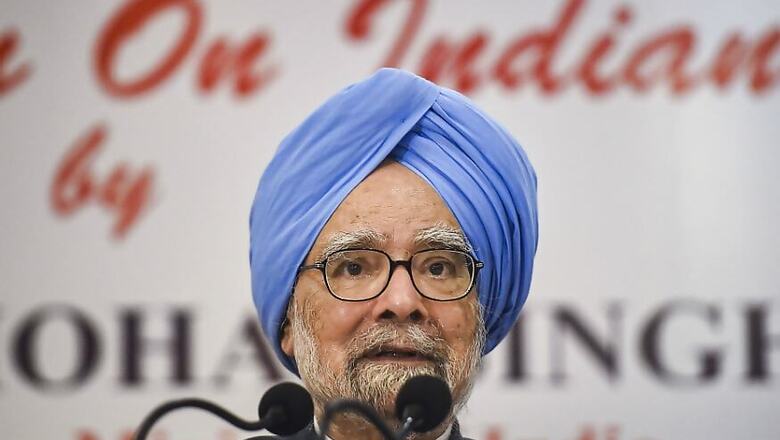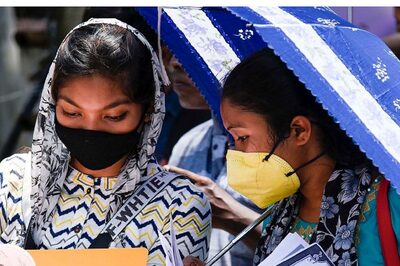
views
Blaming the slowdown on the social fabric of trust and confidence being torn and ruptured under the present dispensation, former Prime Minister Manmohan Singh has called upon the Narendra Modi government to shed its ‘mala fide unless proven otherwise’ doctrine of governance to revive the economy.
“A nation’s state of the economy is also a function and reflection of the state of its society… Mutual trust and self-confidence are the bedrock of such social transactions among people that foster economic growth. Our social fabric of trust and confidence is now torn and ruptured,” Singh wrote for The Hindu on the day the Winter Session of the Parliament is set to start.
Citing troubling statistics such as nominal GDP growth falling to a 15-year low; unemployment at a 45-year high and household consumption falling to a four-decade low, the former PM argued these are “mere manifestations of a deeper underlying malaise that plagues the nation’s economy today”.
Singh said the root cause of this rupturing of our social fabric is the Modi government’s ‘mala fide unless proven otherwise’ doctrine of governance.
“The premise of the government’s policy framework seems to be that economic participants have mala-fide intent unless they can prove otherwise. This suspicion that every industrialist, banker, policymaker, regulator, entrepreneur and citizen is out to defraud the government has led to a complete breakdown of trust in our society,” he said.
The 87-year-old said many industrialists have told him that that they live in fear of harassment by government authorities, bankers are reluctant to make new loans for fear of retribution and entrepreneurs are hesitant to put up fresh projects, for fear of failure attributed to ulterior motives.
“Policymakers in government and other institutions are scared to speak the truth or engage in intellectually honest policy discussions. There is profound fear and distrust among people who act as agents of economic growth. When there is such distrust, it adversely impacts economic transactions in a society,” he further said.
He further said that the Modi government seems to view everything and everyone through a tainted prism of suspicion and distrust, and has positioned itself as some saviour, “resorting to foolhardy moral-policing policies such as demonetisation, which have proved to be ill-thought-out and catastrophic”.
“Wrongful evil characterisation of everyone and a ‘good-vs.-evil governance’ doctrine cannot be a recipe for healthy economic growth,” he wrote for the newspaper.
Arguing that the role of social trust in economic development has been well-documented, right from the times of Adam Smith to the modern-day discipline of behavioural economics, Singh said it is imperative that the torn social fabric of fear and distrust is stitched together for economic growth to revive.
The real worrying trend, Singh said, is that the most recent retail inflation numbers have shown a sharp increase, especially the food inflation figure, and it is expected to rise even further in the coming months.
“Continued increase in inflation combined with stagnant demand and high unemployment will lead to what economists term as ‘stagflation’, a dangerous territory from which it becomes very hard for large economies to recover,” he said.
Singh said that while India is currently not in stagflation territory yet, it is prudent to act quickly to restore consumption demand through fiscal policy measures since the impact of monetary policy seems muted.
“It is my belief that India’s fragile economic situation calls for the twin policy actions of boosting demand through fiscal policy and reviving private investment through ‘social policy’ by inspiring trust and confidence in the economic participants in our society,” he concluded.




















Comments
0 comment